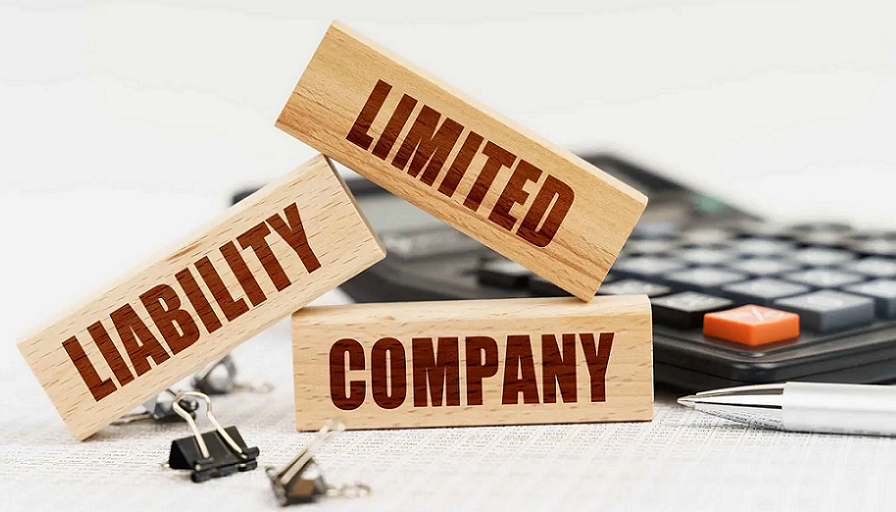
Starting a business can be an exciting venture, but it’s also full of decisions, one of which is deciding on the right business structure to protect yourself and your assets. An LLC, or Limited Liability Company, is often a popular choice because it combines the benefits of personal liability protection with the flexibility of running a simple business entity. However, an important question often arises — can you still be sued personally even if you have an LLC?
Contents
Understanding What an LLC Is
An LLC is a legal business structure that provides its owners, known as members, with limited liability protection. This means that the members are generally not personally responsible for the business’s debts and liabilities. If the LLC is sued, only the business assets are typically at risk, not the personal assets of its members.
This setup is quite appealing for business owners who want to shield themselves from personal liability while enjoying some of the operational flexibility of a partnership or sole proprietorship. The structure allows for pass-through taxation, meaning the profits or losses of the LLC are reported on the personal income tax returns of its members.
The Basics of Liability Protection
In theory, liability protection is one of the LLC’s most attractive features. It works like a protective barrier between your personal assets — like your home, car, and personal bank accounts — and the liabilities of your business. As long as you maintain the LLC properly and adhere to its requirements, your personal assets should generally be safe if the company faces legal action.
Scenarios Where Personal Liability Can Occur
While an LLC provides strong protection, it’s not an impenetrable shield. There are specific situations where you could still face personal liability despite having an LLC.
Personal Guarantees
One very common situation that can expose you to personal liability is providing a personal guarantee. A personal guarantee is a promise that you will pay back a loan or debt if the LLC can’t. When securing a loan for the business, lenders may require this, particularly if the LLC lacks credit history. If the business defaults on the loan, you as the individual may be personally responsible for repaying it.
Mixing Personal and Business Finances
To keep your liability protection intact, it’s crucial to carefully separate personal and business finances. If you co-mingle funds, such as paying personal bills from a business account, a court may decide that the LLC is not a separate entity from you. This action is known as “piercing the corporate veil,” allowing creditors to go after your personal assets.
Fraudulent or Illegal Activities
If you, as a member of an LLC, engage in fraudulent, illegal, or reckless activities, you can be personally liable. Courts do not offer liability protection for wrongful acts, so always operate your business with honesty and integrity.
- Intentional harm to other parties or conducting fraudulent activities.
- Failing to properly maintain the LLC’s separate legal status.
- Personally signing contracts in your own name rather than the LLC’s.
Maintaining Your LLC’s Liability Protection
Fortunately, there are several steps you can take to ensure that your LLC continues to protect your personal assets effectively.
Proper Formation
It’s essential to form your LLC correctly, following your state’s specific legal requirements. This often includes filing the necessary paperwork, paying formation fees, and adopting an operating agreement. Failure to comply with these initial requirements could jeopardize your liability protection.
Keeping Records
Meticulous record-keeping is critical for maintaining your LLC’s protective barrier. This involves keeping detailed records of business transactions, meetings, and decisions. Maintaining separate business bank accounts and credit cards is also crucial. Doing so helps illustrate that your business is a distinct entity.
Using Business Names Correctly
Make sure that you always operate under your LLC’s registered name. Use this name on any contracts, leases, and agreements, and ensure that it’s displayed on company material like signage and business cards. Conducting business in the LLC’s name reinforces its formal structure.
Following Operational Protocols
Adhere to your LLC’s internal operating agreements and formal protocols. This includes holding regular meetings if mandated, even if they aren’t required by your state’s laws. Demonstrating that your business functions with consistent protocols helps maintain its legal integrity.
Purchase Liability Insurance
Business liability insurance can serve as an extra layer of protection. While it doesn’t replace the inherent protections of an LLC, it can cover certain claims and help shield personal assets in cases where legal protection might be breached. Consult with an insurance advisor to determine the best coverage for your business needs.
Importance of Professional Guidance
No business decision should be made lightly, and when it comes to setting up an LLC, consulting with a legal professional can be immensely beneficial. They can guide you through the formation process, help ensure compliance with state laws, and provide advice on maintaining the protection your LLC offers.
An accountant or tax advisor can also play an essential role in managing your LLC’s finances. These professionals can help you set up a proper bookkeeping system and make sure you remain compliant with tax regulations.
While an LLC is a fantastic choice for many small business owners due to its liability protection features, it’s crucial to understand that it’s not a foolproof safeguard. There are circumstances where personal liability can arise, so managing your LLC judiciously is paramount to maintaining its protective benefits. Stay organized, adhere to business protocols, and when in doubt, seek professional guidance. By doing so, you give your LLC the best shot at shielding your personal assets from business-related legal actions.

